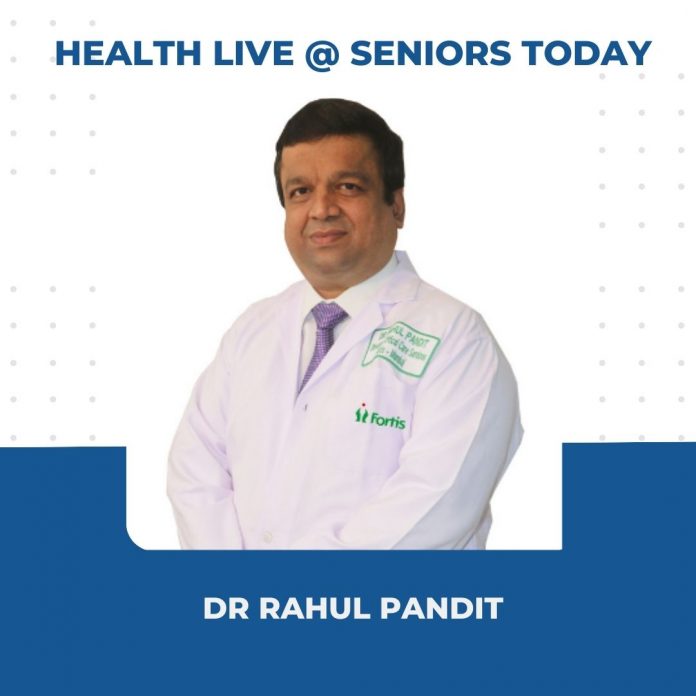On April 2, 2022 Seniors Today hosted their weekly Health Live Webinar with Dr Rahul Pandit who spoke on Diagnosis & Control of Non-Communicable Diseases for Seniors as Non-Communicable Diseases as a concept needs more explanation and a better understanding.
Dr Rahul Pandit is a Senior Intensive Care Consultant with over two decades of experience and is the Director of Critical Care Medicine and ICU at Fortis Hospital, Mumbai. Having a prestigious Fellowship of Joint Faculty of Intensive Care Medicine, Australia, Dr Pandit plays the lead role in setting up ICU policies, protocols, and patient care algorithms. He has also completed the European Diploma in Intensive Care Medicine (EDIC).
He is a member of the Maharashtra government’s taskforce on Covid-19. This taskforce played a key role in establishing a patient management protocol for serious and critically ill patients. It also recommends the requirement of specialist doctors and health care support staff in the critical care hospitals, suitable drug protocol to maintain uniformity in treating critically ill patients, and recommends criteria and logistics requirements to transfer critical patients.
He is also a member of the Fortis Medical Council. Dr Pandit has numerous publications and book chapters to his credit along with guest lectures in several national and international conferences. His areas of interest include – Critical Care Echocardiography, Trauma, NeuroTrauma, Obstetric Emergencies in ICU & Proteomics, and Sepsis.
Non-Communicable Diseases include health conditions like diabetes, hypertension, uncontrolled cholesterol levels etc. When in control, the risk of death is far less. And these non communicable diseases form a quantum of the diseases in our population right now.
During the pandemic, it was observed and has been very clearly established that individuals with non communicable diseases had a good control of their diseases, their risk of deterioration from an infection is almost the same as the general, healthy (but now infected) population.
If you have a good control over your non communicable disease, your risk comes down considerably from any other infectious disease that you might catch.
Diabetics and individuals on immunosuppressive therapy are at a higher risk of catching tuberculosis unknowingly.
There are programmes that have been launched by the Indian government, private hospitals and the Indian Medical Association that focus on keeping the diabetic patients blood sugar levels under control, to help hypertensive individuals keep a track of their blood pressure, addressing obesity as a problem and so on.
Our primary focus should be on controlling blood pressure, diabetes and obesity which will in turn help in keeping heart disease, liver disease and other diseases at bay.
Here are a few things and habits we can inculcate to make it happen:
- Walk daily
- Keep a check on your diet
- If you are a newly and known case of diabetes or hypertension, strictly follow the medical advice offered to you by your practitioner so as to keep your parameters under control.
Going a little astray from the topic, you can take your booster shot after 3 months or 90 days of contacting COVID in case you’re a senior (over 60 years of age).
The booster doses for others and all adults is set to roll out soon in the coming months.
A nasal form of the vaccine is also under way. Researchers have been working on developing a 2nd generation of vaccine that not just provides us protection against severe forms of disease (like the first and second dose) but helps provide immunity against the infection itself. But you also need to keep in mind that the corona virus is a RNA virus, much like the influenza virus; and it has been 200 years and we are yet to form a vaccine that provides complete protection and cure against it.








